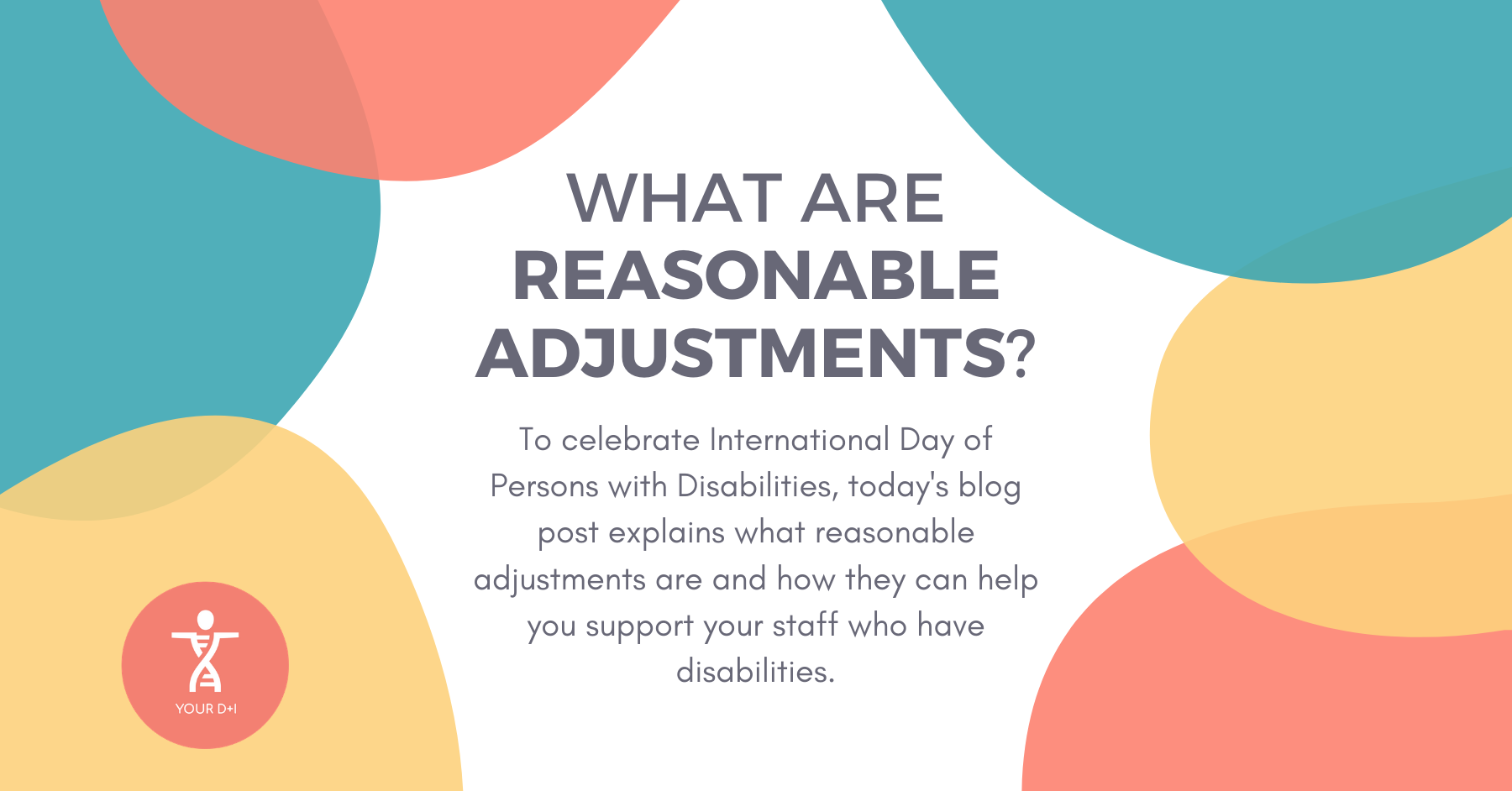What Are Reasonable Adjustments?
You may have heard the term ‘reasonable adjustments’ floating around the office, but what does it mean? To celebrate International Day of Persons with Disabilities, we’re providing an overview of what reasonable adjustments are and how you can use them to support those with disabilities in your workplace.
Even if you’re not in a managerial role, it is important for all employees to understand reasonable adjustments. This is because they sometimes affect other staff members in some way. Having an understanding of reasonable adjustments will help them understand these changes and how they can support their colleague.
On that note, let’s get onto what reasonable adjustments are.
What does ‘reasonable adjustment’ mean?
A reasonable adjustment is a change an employer makes that reduces disadvantage caused by an employee or candidate’s disability. The change is usually aimed at making it easier (or possible) to apply for or do a job.
Adjustments might be made to the workplace, how things are executed or the amount of help provided. In terms of the workplace, ramps may be added so people in wheelchairs can move about the office. For someone whose disability gives them memory problems, they may be given written instructions rather than verbal ones.
What else might you need to change?
Reasonable adjustments come in many forms and completely depend on the individual. They might involve providing something, such as a parking space or hearing aid compatible phone. It might involve removing something, like a bright light near someone’s desk. Work arrangements could also be changed, such as changing an employee’s shift patterns or break frequency.
As long as the change will reduce the employee’s disadvantage due to a disability, adjustments can vary significantly.
Do you have to make these changes?
By law, employers must make reasonable adjustments when they are requested. They are also required to make adjustments if there is reason to think they may be required. This reason could be knowledge of an employee’s disability, a disabled employee having difficulties with a task or absences due to a disability.
In any of these situations, an employer is required to implement any requested adjustments if they are reasonable.
What is ‘reasonable’?
You may be wondering how to know whether an adjustment is ‘reasonable’ or not. While we want to help our disabled employees as much as possible, adjustments do need to be reasonable.
What is considered reasonable depends largely on the situation. However, if you are in doubt about whether an adjustment is reasonable, consider the following factors:
- Will it reduce the employee’s disadvantage due to their disability?
- Is it practical to perform?
- Is it affordable to perform?
- Could it harm other employees?
If you’re still unsure whether an adjustment is reasonable, it is advisable to seek legal advice on the subject.
When should reasonable adjustments be offered?
When recruiting new talent, reasonable adjustments should usually be raised when arranging an interview or meeting. This is the case whether or not you know the candidate has a disability as you will not always know this from an application form or even seeing somebody in person.
It is important to ask for any reasonable adjustments required by the candidate prior to the meeting. This way, changes can be made to the place of the interview or what you say to the candidate. For example, you may need to hold the meeting somewhere that is accessible to those in wheelchairs. You may also need to amend your interview material to be more accessible to autistic candidates for example.
You may think a current staff member who has a disability could benefit from a reasonable adjustment. In this case, open a friendly dialogue with them in private.
Summary
While the term can seem confusing at first, reasonable adjustments are simply changes that will benefit everyone. In particular, though, they are designed to allow those with disabilities to perform their best at work.
They also give disabled candidates a more even playing field during recruitment. However, employers will also need to work on their unconscious biases to truly achieve equal and inclusive recruitment.

